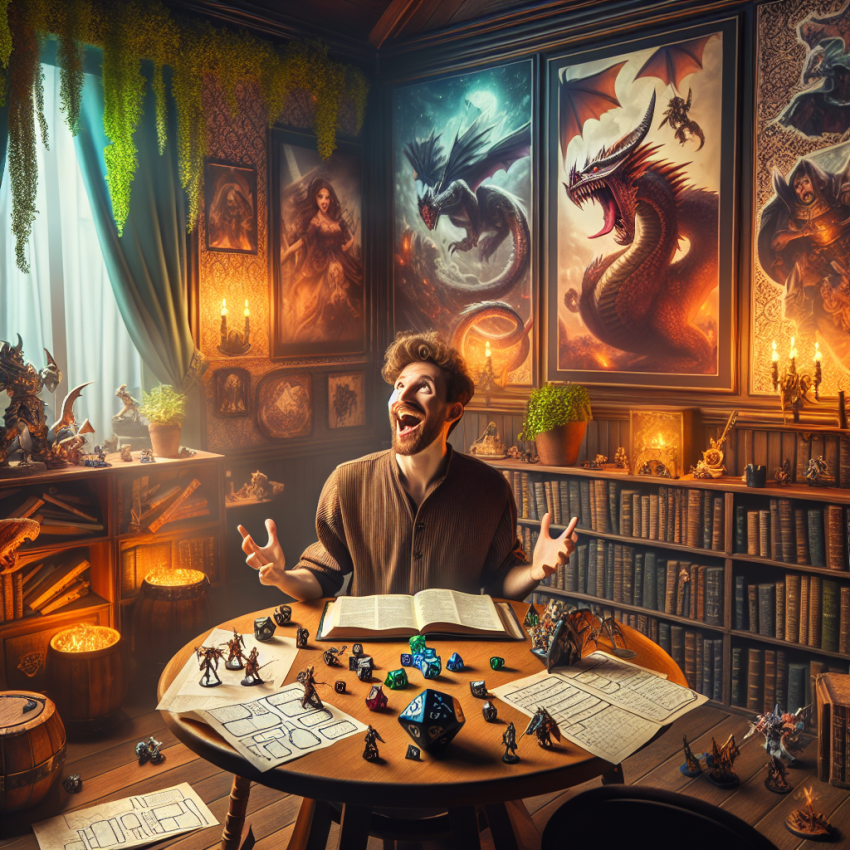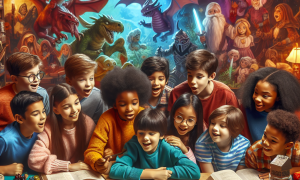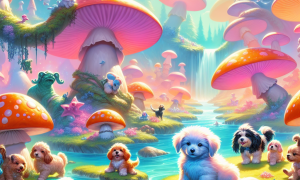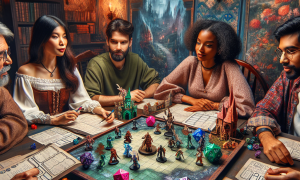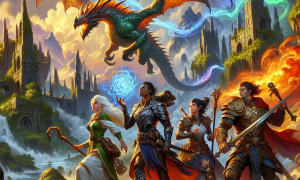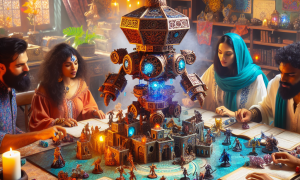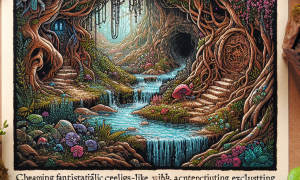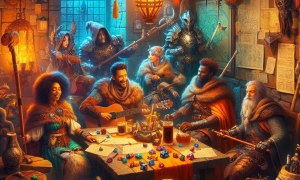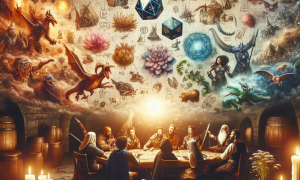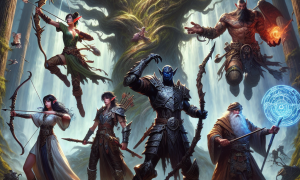Introduction to the World of Dungeons & Dragons
For many people, the mention of **Dungeons & Dragons (D&D)** conjures images of elaborate dice rolls, fantastical worlds, and intricate storytelling. Yet, for some, it can also seem like an intimidating endeavor steeped in secrecy and complexity. One news reporter, who initially viewed D&D from the outside, found themselves pulled into the enchanting universe of tabletop role-playing games.
In this blog post, we explore the captivating journey of discovering Dungeons & Dragons, emphasizing how anyone can embark on their own adventure—just like this intrepid journalist.
Aserious Misconceptions
Historically, Dungeons & Dragons has been shrouded in misconceptions. Some dismiss it as a mere game for nerds or a relic of the past. Others perceive it as overly complicated. However, as this news reporter discovered, once you peel back the layers, you enter into a thriving community of creativity and collaboration.
Breaking Down Barriers
Initially, the journalist approached D&D with skepticism, predominantly associated with its stereotypes. However, a deeper exploration revealed the richness of the experience. Here are some of the barriers debunked:
- Misconception #1: D&D is too complicated to learn.
- Misconception #2: It’s only for a specific type of person.
- Misconception #3: You need to have prior knowledge to join a game.
- Misconception #4: It’s only about combat and strategy; storytelling isn’t important.
Understanding these misconceptions is the first step towards engaging with the fascinating world of D&D.
The Call to Adventure
Our reporter’s journey began in an unexpected way. What started as an assignment quickly turned into something much more significant. The allure of D&D wasn’t just about the gameplay; it was the rich **storytelling** and the opportunity for **community building** that drew them in.
Game On: The Mechanics of Play
Upon joining a campaign, the journalist was introduced to the essential mechanics of the game. Here’s a breakdown of some of the fundamental components of Dungeons & Dragons:
- Character Creation: Players create characters with distinct attributes, abilities, and backstories.
- Dice Rolling: Dice are used to determine outcomes, adding an element of chance and excitement.
- Storytelling: The Dungeon Master (DM) orchestrates the storyline, guiding players through quests and challenges.
- Collaboration: Players work together, strategizing on how to overcome obstacles and develop their characters.
In this way, D&D is a blend of statistics and narrative, making it accessible to a diverse group of players.
A Community Like No Other
One of the standout aspects of Dungeons & Dragons is its sense of community. Many players often forge deep connections while playing, sharing stories that transcend the gaming table.
Experiencing Camaraderie
For the reporter, the transition from spectator to participant opened new avenues for consider camaraderie and friendships:
- Collective Problem Solving: Navigating challenges together fosters strong team dynamics.
- Shared Experiences: Creating stories together deepens bonds among players.
- Inclusivity: D&D attracts a variety of players, encouraging a sense of belonging.
- Supportive Environment: The lack of judgment allows players to experiment and express themselves.
For those looking to explore their creativity, D&D can serve as an environment where collaborators can flourish.
Learning and Growth through Gameplay
The journalist’s experience with D&D illuminates how the game nurtures personal development. As players dive into their roles, they take part in practical lessons applicable in real life.
Skills You Can Gain from D&D
Many players report developments in specific skills after playing Dungeons & Dragons:
- Critical Thinking: Players must constantly analyze situations and consider various solutions.
- Communication: Clear articulation of thoughts and plans enhances group strategy.
- Empathy: Stepping into a character’s shoes helps players understand different perspectives.
- Creativity: Players often find inventive solutions to challenges within the game.
Not only is it a tale of fantasy and adventure, but it also serves as a platform for real-world learning.
Finding Your Game: How to Get Started
So, how can someone interested in Dungeons & Dragons take that first step? Here are some suggestions for those intrigued by the world of tabletop gaming:
- Gather Your Friends: Find a group of friends who are interested in playing or willing to learn with you.
- Find Resources: There are countless online resources and books to guide new players in understanding the rules.
- Join a Local Group: Check community centers, libraries, or online platforms where groups seek new players.
- Be Open to Creativity: Don’t be afraid to contribute your own ideas and narratives to the game!
Starting your journey in D&D should be as exciting as the adventure itself.
Pursuing a Personal Adventure
In conclusion, the world of **Dungeons & Dragons** is a vibrant tapestry of creativity, strategy, and storytelling. Our reporter’s journey into this universe opened their eyes to new possibilities, showcasing that tabletop role-playing games can foster connections and provoke personal growth.
Whether you’re an experienced gamer or someone brand new, D&D presents a world ripe for exploration. Embrace the adventure, join a campaign, and you might just find yourself embarking on a quest of your own!
